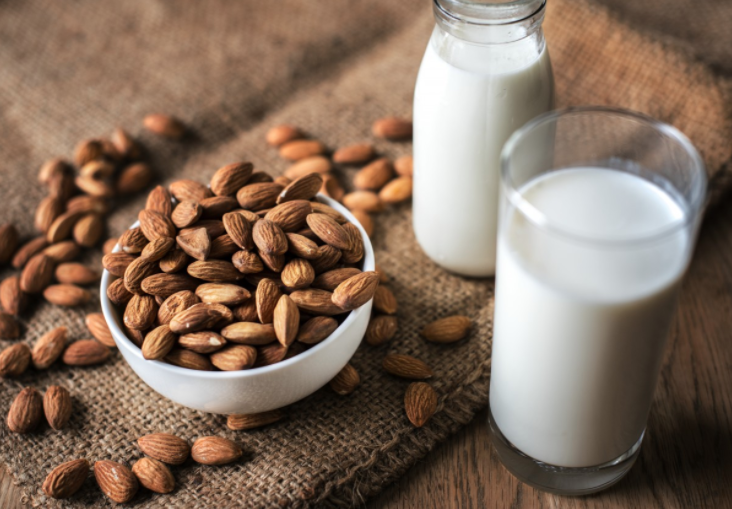The pandemic has got Americans consuming more milk for some reason - perhaps due to trends on TikTok like making mini-anything into cereal. To revive the iconic 'Got Milk' advertising campaign from the 90s, the Milk Processor Education Program is appealing to the current generation through the #GotMilkChallenge as well as several other digital ads.

However, despite many believing that drinking cow's milk is essential to bone health, Harvard nutritionists have linked the beverage to cancer, weight gain, and risk of heart disease. According to the U.S. 2020 Dietary Guidelines Advisory Committee, 'If meat and dairy foods are included in the dietary pattern, choosing lean cuts and lower fat dairy options are preferred.'
Dr. Tamara Hannon from the American Academy of Pediatrics' Committee on Nutrition said that if people have a family history of heart disease and attacks, 'you would want to choose a different dietary path and avoid full-fat dairy more than a family without those risk factors.'
Fortunately, we live in a time that milk alternatives or 'mylk' have become increasingly popular and widely available. Here are the five best mylks for better health:
Hemp Milk
Despite coming from the seeds of the Cannabis sativa plant, consuming hemp milk does not come with the plant's psychoactive components. Mylk from hemp seeds are full of protein and contain both omega-3 and omega-6 unsaturated fats.
The fatty acids are beneficial for heart and brain health while helping the body fight inflammation. Hemp milk also contains more calcium than cow's milk and contains zero carbohydrates if no sugar or sweetener is added.
Oat Milk
Soaking whole oats results in a fiber-rich, creamy drink. Fiber helps the body slow down digestion, keeping it full for longer while stabilizing glucose (blood sugar) levels.
Soluble fibers found in oats are beta-glucans which help lower cholesterol levels. Fortified oat milk typically contains vitamin D and calcium which are both essential to bone health.
Almond Milk
Some almond milk brands have added sugar so it's best to check to the label to avoid unwanted carbs. Almonds are filled with antioxidants, vitamins E and D, as well as minerals such as calcium and potassium.
Read Also: Kosher Diet: Israeli Firm Wants to Use Locusts As Alternative Protein Source; Is It Safe to Eat?
Coconut Milk
This rich dairy alternative is both tasty and highly nutritious. Coconut milk is linked to helping with weight loss, reducing body fat, and improving digestion.
It also helps regulate blood pressure and cholesterol levels while containing lots of electrolytes for energy. Coconut milk is also a good alternative for those that are avoiding dairy and have nut allergies.
Soy Milk
Soybeans are a good source of protein, potassium, calcium, and vitamins. When fortified with omega-3 fatty acids, soy milk 'exert antioxidant, anti-inflammatory, and cardioprotective properties,' according to Dr. Julieanna Hever, the author of 'The Vegiterranean Diet.'
Nutritionally, it's the closest to low-fat cow's milk with all the essential amino acids with balanced carbohydrates and fats.
Read Also: Understanding the 10 Principles of Intuitive Eating










